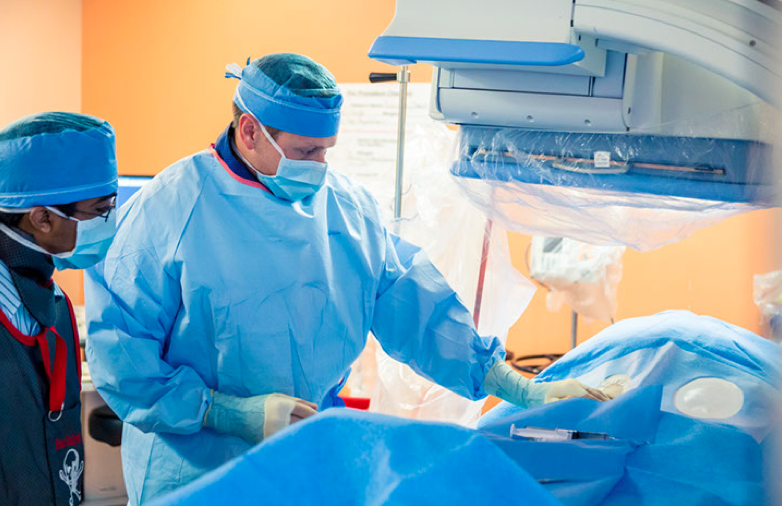Last month, we kicked off a year-long celebration of VA’s longtime partnership with the nation’s medical schools to train clinicians in the care of our Veterans. We shared with you a video highlighting the resulting achievements, as well as comments from some of the top doctors at the Association of American Medical Colleges affirming the strong and growing relationships between VA, medical schools, their students and faculties.
Seventy years ago, on Jan. 30, 1946, Policy Memorandum #2 was issued, creating the association between VA and medical schools. Every few weeks between now and Jan. 30, we will share more of what today’s medical and academic leaders have to say about this important relationship.
Dr. Robert Jesse M.D., Ph.D., is the Chief Academic Affiliations Officer for VA, where he oversees the largest health professions education program in the United States, including over 120,000 trainees annually in more than 40 different health professions. Previously, he was the Principal Deputy Under Secretary for Health where he led clinical policies and programs for VA, the nation’s largest integrated healthcare system. He is also a professor of internal medicine and cardiology at Virginia Commonwealth University School of Medicine.
In 2014, 41,223 medical residents, 22,931 medical students, 311 advanced fellows, and 1,398 dental residents and dental students received some, or all, of their clinical training in VA. VA’s physician education program is conducted in collaboration with 135 of 141 allopathic medical schools and 35 of 40 locations for osteopathic medical schools. Many trainees have their health profession degrees and contribute substantially to VA’s ability to deliver cost-effective and high-quality patient care during their advanced clinical training at VA.
Topics in this story
More Stories
The Medical Foster Home program offers Veterans an alternative to nursing homes.
Watch the Under Secretary for Health and a panel of experts discuss VA Health Connect tele-emergency care.
The 2024 National Veteran Suicide Prevention Annual Report provides the foundation for VA’s suicide prevention programs and initiatives.







Mr. McKinnon, One of the biggest complaints I hear from vets is the number of VETERANS Health Administration doctors that have a hard time speaking english. Right up front, please know that I an NOT prejudice! I am 1/2 native american, & have been called many less than flattering names in my 60 years! It is, however, very frustrating when you are being rushed thru your appt like cattle at an auction, & spend half the time with either the vet or the doc saying “What? “, “What do you mean? “, or “I don’t understand”. I will admit that one time when I walked into a Dr’s office, & he was wearing a turban, I got VERY nervous! With all of these academic affiliations, why is it so difficult for us to get doctors whose FIRST language is english; afterall, you did say the Association of American Medical Colleges. In closing, I would like to ask: how many of these doctors actually stay in the U.S. after we invest so much $$$ in training & employing them at the various VETERANS Health Administration facilities?
Thank You for your article.